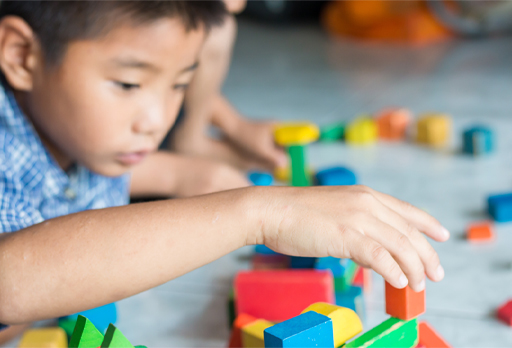3 Play therapy
Play is, in effect, a symbolic language: a means of communication by which children can express themselves without necessarily having to use words. Through play, children can communicate their understandings and stories about their worlds and reshape their experiences as a natural way of recovering from daily emotional upheavals. Play can therefore have a very powerful therapeutic effect as a vehicle that trained personnel can use to help channel thoughts and emotions, including in very distressed young children.
Through play therapy, the practitioner enables both a structure to the session as well as the creation of a ‘safe space’ to work through powerful emotional reactions. The practitioner (such as a counsellor) will carefully observe the objects the child chooses to use in their play, the ways in which they use these objects and how the child interacts with the counsellor through play.

